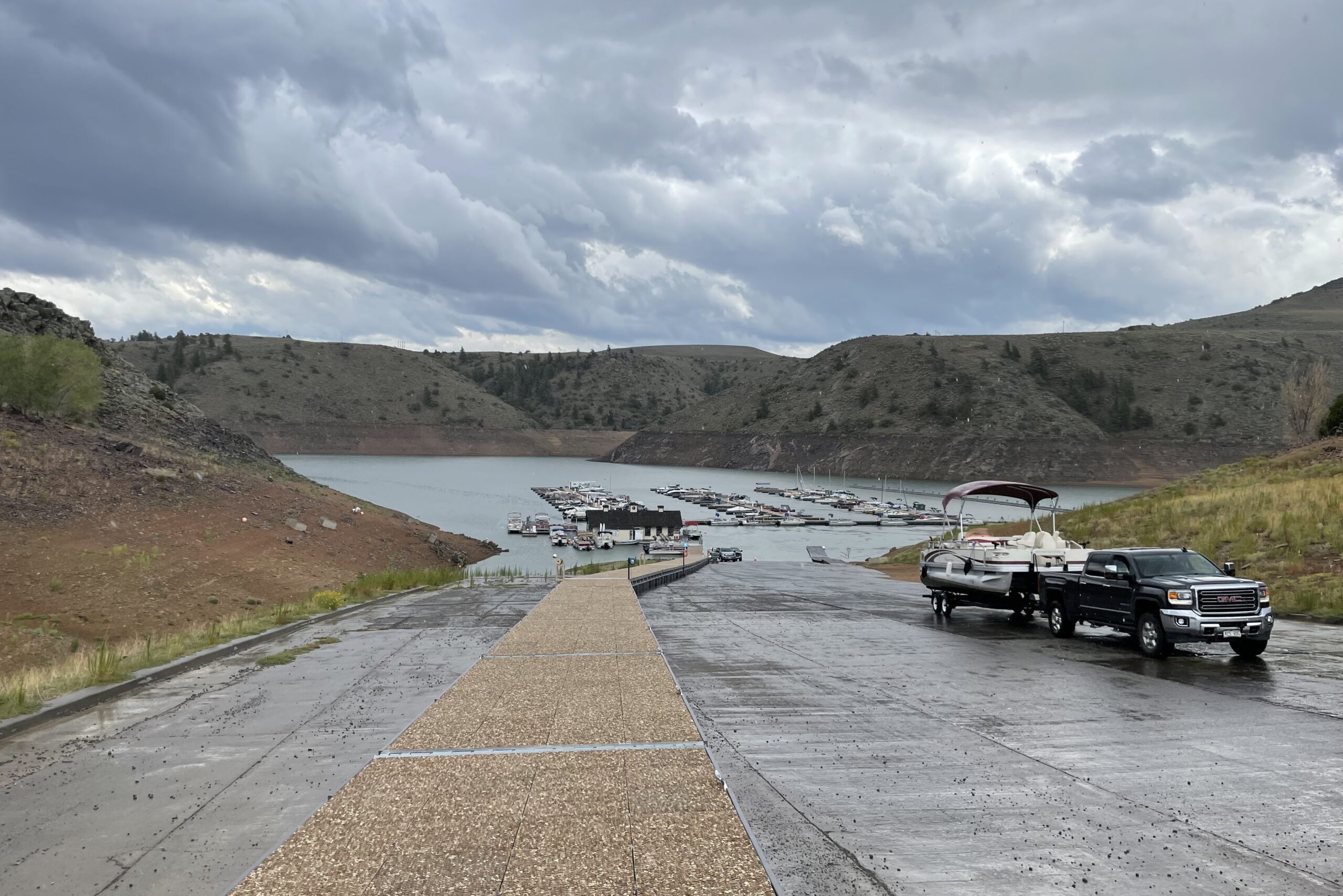
The marinas at Colorado’s largest reservoir will stay closed this boating season because of the looming possibility that Lake Powell on the Utah-Arizona border might need more water.
Last year, the U.S. Department of the Interior ordered the release of 8 feet of water from Blue Mesa Reservoir near Gunnison to be sent downstream to Lake Powell. The emergency action was needed to prop up water levels in the nation’s second-largest reservoir, which has hit its lowest level on record amid a 20-year, climate change-fueled megadrought in the Colorado River basin.
The drop in water levels led to an early closure of the marinas, cutting six weeks out of the lake’s five-month tourism season. The National Park Service told everyone who stored their boats at the marinas that they had 10 days to remove their boats from the reservoir.
Federal and state officials said the plan is to leave Blue Mesa alone this year so it can start to recover. But they acknowledge the Colorado reservoir might be tapped again if Lake Powell needs more water to protect its ability to produce hydropower for millions of people across the West.
Because of this possibility, the National Park Service has decided not to open Blue Mesa’s marinas this year.
Erick Loken’s family has run the marinas for decades. He recently wrote a letter to seasonal boaters to share the “unimaginable” news that the docks, floating stores and Pappy’s restaurant will stay shuttered for 2022. Loken said the situation is devastating.
“If you take a seasonal business and you shut it down for a year, can you even survive long enough to last until the next year?” Loken said. “Or do you have to give up on it?”
Typically, the reservoir's Elk Creek and Lake Fork marinas are open by May 1. Loken said National Park Service officials delayed the opening this year as they waited for updated forecasts on water inflows into Lake Powell. The latest projections show Lake Powell will likely only get about 60 percent of the normal amount of water that flows into the reservoir.
Loken was concerned that the ongoing drought would lead federal officials to take water from Blue Mesa again, but he did not expect the 2022 boating season to be effectively canceled. He was optimistic when snow collecting in the mountains around Gunnison hit normal levels and said the marinas had previously operated with low water levels.
Loken said it’s hard to run a business on a lake that can be drained at a moment’s notice. He had employees lined up and ready for the boating season to begin, including one Loken helped put through marine technician school to work as a boat mechanic for the 2022 season.
“Now he’s out looking for other work,” Loken said.
Loken worries that the closures will hurt the local economy, which depends on recreation and tourism. While the ramp at Elk Creek will remain open, closing the docks means hundreds of people won’t be able to keep larger boats in the water for summer. Loken said many of those boat owners live out of town and don’t want to drive back and forth with their boats each time they want to visit.
Lake Powell does need more water to protect its ability to keep producing hydropower. This year, the federal government plans to take water out of the Flaming Gorge reservoir on the Utah-Wyoming border while also holding back releases to downstream states. Loken said since projections show the drought will remain and likely worsen with human-caused climate change, people need to change how the Colorado River and its reservoirs are used.
“We can’t keep pretending that we have more water than we have,” Loken said.








